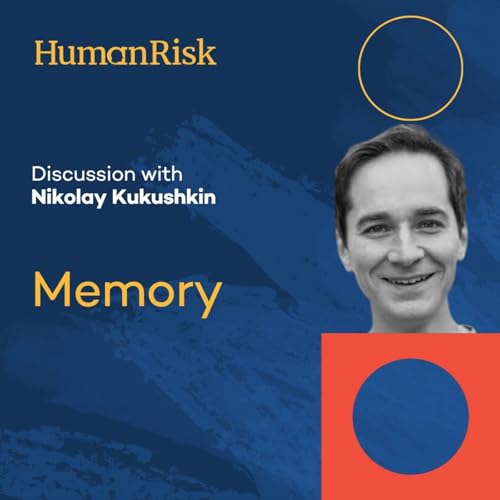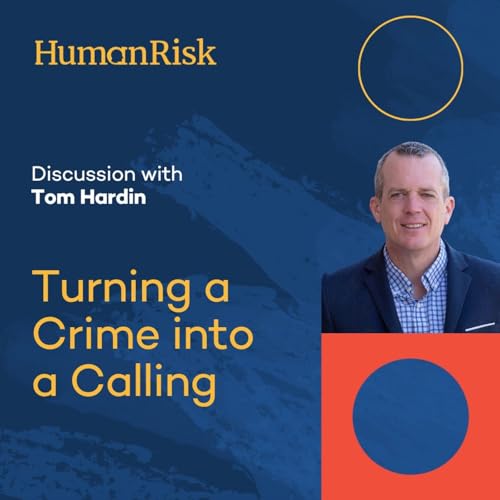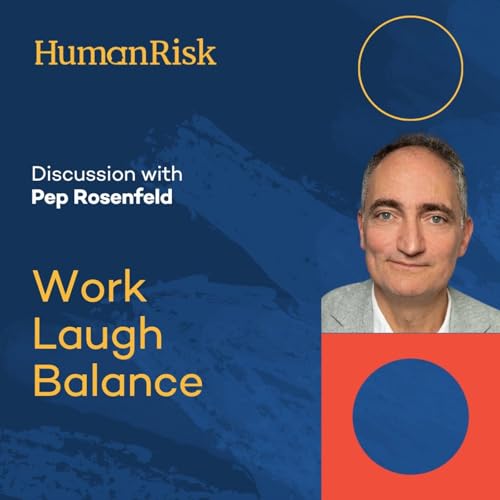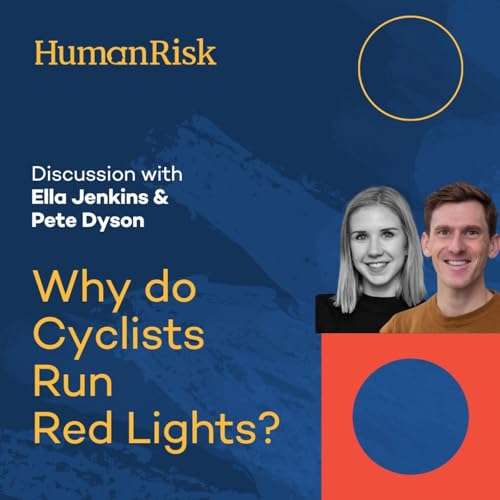What can war teach us about how the human brain really works? And why is human decision-making a more significant factor than military strength in wars?Episode SummaryOn this episode, I'm exploring how the human brain truly manifests in conflict—and what that reveals about everyday decision-making. Dr Nicholas Wright, a neurologist-turned-neuroscientist who advises the Pentagon Joint Staff, joins me to discuss his new book Warhead: How the Brain Shapes War and War Shapes the Brain. In our conversation, Nick explains why fear is functional, how “will to fight” can outweigh superior force, and why democracies remain capable of catastrophic decisions. He also explains how perception operates as a controlled hallucination anchored to reality rather than a simple sensory feed, and why that distinction matters for strategy, leadership, and risk. Moving from fruit flies to front lines, Nick shows how simple neural chemicals regulate aggression, how the brain’s grid cells create literal maps to navigate danger and opportunity, and how both biological and organisational models can mislead when mistaken for reality. The discussion ranges from 1940 France to Kyiv, from Stalingrad to Gaza, and from deception as a vice to deception as a civic virtue.Nick makes a compelling case for metacognition — the ability to think about one’s own thinking— as the conductor of the brain’s internal orchestra and argues that wisdom—not merely cleverness — must be deliberately designed into leaders and into the next generation of artificial intelligence.We end with practical insights: cultivating “better ignorance,” inviting real dissent in the spirit of Churchill, and creating deliberate spaces for reflection like (I'm delighted to report) long train journeys.Guest Biography Dr Nicholas Wright, MRCP, PhD, is a neuroscientist researching the intersections of the brain, technology, and security at University College London, Georgetown University, and the Center for Strategic & International Studies in Washington, DC. He also serves as an adviser to the Pentagon Joint Staff. Beyond academia, Wright leads projects connecting neuroscience, artificial intelligence, and strategy, and has advised the Pentagon Joint Staff for more than a decade.He consults on AI for SAP and edited Artificial Intelligence, China, Russia, and the Global Order (Air University Press, 2019).His latest book, Warhead: How the Brain Shapes War and War Shapes the Brain, is published by St. Martin’s Press (US) and Pan Macmillan (UK).AI_Generated Time-stamped Summary[00:00:00] Introduction [00:01:00] Nick Wright’s journey from neurologist to defense advisor, applying neuroscience to strategy and AI.[00:04:29] How evolution shaped the human brain for survival and combat — we’re “built to win or survive a fight.”[00:05:59] Fear as a vital yet double-edged emotion; anxiety as a side effect of peace.[00:08:26] Origins of the book Warhead and cultural perceptions of its title.[00:09:39] Why war remains relevant; critique of overconfidence in peace and Pinker’s “Better Angels” thesis.[00:12:01] Lessons from France’s WWII defeat — cognition and morale outweigh material strength.[00:14:41] Ukraine’s resistance as an example of will to fight; psychology as a decisive factor.[00:15:42] Creativity and emotion as essential tools in decision-making; the brain as an orchestra balancing logic and instinct.[00:18:10] What fruit flies reveal about aggression and shared neural circuitry with humans.[00:21:13] Structure of Warhead — using neuroscience to reinterpret history and warfare.[00:26:37] Mental models and how the brain simulates reality to guide choices.[00:30:37] Perception vs. reality — the brain generates, not records, the world we see.[00:35:31] The “uncanny valley” and prediction errors — why imperfect mimicry unsettles us.[00:36:17] Moral symmetry in conflict — both sides perceive their cause as just.[00:38:00] Deception and fog of war — manipulating human perception as a timeless weapon.[00:41:00] WWII story of René Carmille — lying as moral resistance.[00:43:59] Social media, attention, and the loss of reflection — the modern “disease of abundance.”[00:45:41] Wisdom versus cleverness — Churchill’s reflective habits and valuing dissent.[00:48:11] “Better ignorance” and intellectual humility as foundations of wise leadership.[00:51:26] Cognitive diversity, AI, and the need to embed wisdom—not just intelligence—into machines.[00:58:28] From WWII to China today — the enduring need for wisdom in navigating global conflict.LinksNick's website - https://www.intelligentbiology.co.uk/WarHead Nick's book - https://www.intelligentbiology.co.uk/booksNick on LinkedIn - https://www.linkedin.com/in/nicholas-d-wright-bba3a065/If you liked this episode, you might also like my discussion with Dr Mike Martin - https://www.humanriskpodcast.com/dr-mike-martin-on-war-politics/
Voir plus
Voir moins
 1 h et 2 min
1 h et 2 min Oct 25 20251 h et 7 min
Oct 25 20251 h et 7 min Oct 18 20251 h et 9 min
Oct 18 20251 h et 9 min Oct 5 202555 min
Oct 5 202555 min 1 h et 5 min
1 h et 5 min Sep 6 20251 h et 3 min
Sep 6 20251 h et 3 min 54 min
54 min Aug 24 20251 h et 7 min
Aug 24 20251 h et 7 min

